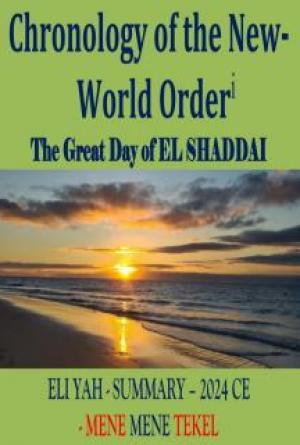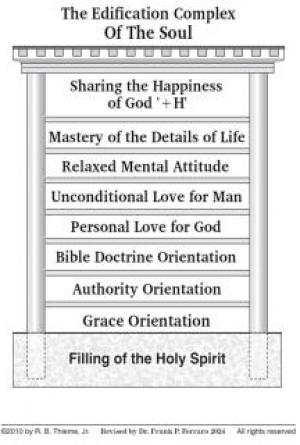Chapter 12
Actual comments left by previous readers
Page 77
3
Further Reading
Page 84
4
* It is clear that PLATO and many Greek philosophers taught the
soul was indestructible.
* ... " The belief in the immortality of the soul came to the Jews from contact with Greek thought and chiefly through the philosophy of
Plato, its principal exponent…" The Jewish Encyclopedia (
www.jewishencyclopedia.com - searched "immortality" )
* ..." Among major schools of Greek thought, only Epicureans denied the soul's immortality." (Craig S. Keener, The IVP Bible Background Commentary New Testament, Downers Grove, Inter
Varsity Press, 1993, p.374)
* ..." immortality of the soul, as normally understood, is not a Biblical doctrine…" ( The International Bible Commentary, second edition, Grand Rapids, MI, Zondervan Publishing House, 1986,
p.60 column 2)
* ..." It is a truism that Plato's teaching has profoundly influenced Christian anthropology." (Forward by F.F. Bruce, The Fire that Consumes, Edward Fudge .)
*Summary of above:
Except for the Epicureans, Greek philosophers taught
of the soul's natural immortality - without God.
5
* However, the scriptures teach the soul is destructible and
immortality is part of the gospel.
*....."Rather, be afraid of the One who can destroy both soul and body….." (Matthew 10:28)
*....."There is one lawgiver, who is able to save and to destroy…"
(James 4:12)
*....."....who hath abolished death, and hath brought life and immortality to light through the gospel:" (2 Tim 1:10)
*Summary of above:
Jesus and James taught the soul was destructible.
Paul taught that immortality is brought through the
gospel.
Greek Philosophers or
Jewish Biblical Authors
Whom do you believe and why?
6
Chapter 1
What is "Conditional Immortality " ?
A growing number of well-known Christian leaders, such as
Dr. David R. Reagan, John R. Stott, Greg Boyd, Roger Forster
(co founder of the March for Jesus events), Philip Hughes,
Michael Green, Stephen Travis, and Clark Pinnock have
declared support for part, or all, of the biblical doctrine of
conditional immortality. Even the British Bible translator,
William Tyndale, also defended Conditional Immortality
during his lifetime. Also, the very well respected scholar F.F.
Bruce states, "Eternal conscious torment is incompatible with the revealed character of God" so he chose to write the forward
to an excellent evangelical book on this topic called, " The Fire that Consumes" by Edward Fudge.
While some call it annihilationism, simply stated, "Conditional
Immortality" is the biblical belief that the "immortality" of the soul is not inherent (Greek philosophers thinking) but
conditional (Biblical thinking) upon receiving the gift of
everlasting life through faith in Jesus (Yeshua). It is part and
parcel of the gospel. God alone has immortality -- anyone else
becomes immortal only as a result of God's gracious gift (1
Timothy 6:16, Romans 2:7). For centuries, church theologians
have wrongly assumed the Greek doctrine of the immortality
of all souls. Therefore, it is no wonder that the message of
immortality has been completely dropped from modern
preaching. I ask you, when have you ever heard a message offering "immortality" as part of the gospel presentation? It is almost never done, because today most people falsely assume
the soul is already immortal. Yet, immortality through Jesus
(Yeshua) alone is what the Jewish Apostle Paul preached:
* (He/Jesus), has destroyed death and has brought life and
immortality to light through the gospel. (2 Timothy 1:9b-10)
Paul clearly links immortality to the gospel. Paul did not
believe the Greek philosophy of his day which taught the
immortality of all souls. ( see opening quotes)
7
Before the Messiah, Jesus, came, no one had a chance at
immortality because of sin. If they did, then Paul's statement
would make no sense. Why would immortality come through
the gospel if all had it from birth? The gospel would not have brought about immortality - since all had it. But look how Paul
frames in immortality uniquely and only with believers...
* To those who by persistence in doing good seek glory, honor
and immortality, he will give eternal life. (Romans 2:7)
Notice Paul uses the word " seek" when speaking of
immortality. None of these attributes he lists here are inherent
to mankind. If they were, then the word "seek" would clearly
be out of place. Again, Paul did not believe the Greek
philosophers who taught the immortality of all souls, neither
did Yeshua (Jesus)...
* I am the living bread that came down from heaven. If anyone
eats of this bread, he will live forever. (John 6:51)
Again, why would Jesus Himself make this plain offer to
" LIVE FOREVER" if everyone lived forever?
It is important to note that in Hebrew, the word for 'soul'
(nehphesh) is never used in conjunction with the word
"everlasting" in Tenach (The Hebrew Scriptures/Old
Testament).
Likewise, in the New Testament writings, the word for 'soul'
(psukee) is never used in conjunction with the words 'eternal'
or 'everlasting'.
Again – it is an assumption (based upon Greek philosophy) –
that the soul of mankind is eternal and can never be destroyed.
The Jewish encyclopedia tells us the same thing:
The belief in the immortality of the soul came to
the Jews from contact with Greek thought and
chiefly through the philosophy of Plato, its
8
principal exponent, who was led to it through
Orphic and Eleusinian mysteries in which
Babylonian and Egyptian views were strangely
blended…
(http://www.jewishencyclopedia.com/view.jsp?artid=11
8&letter=I&search=immortality)
“Therefore, God's Gift of Eternal Life is the Answer to
Humanity's Quest for Immortality and 'the Fountain of Youth' .
Think about it, what is humanity's greatest desire – a greater
desire than wealth, fame, true love or sexual gratification?
From the ancient epic of Gilgamesh to Ponce De Leon's
obsessive search for the fountain of youth to our modern-day
compulsion to remain youthful-looking as long as possible,
humanity is obsessed with the idea of immortality, the idea of
living forever.” ( from "Hell Know – Dispelling the eternal
torture myth" with special thanks to its author Dirk Waren.) Yet most refuse to turn to God for this gift. Yet this immortality is
exactly what the gospel offers. (2 Timothy 1:10, Romans 2:7,
John 6:51)
Again I ask you to read through all of the chapters here to see
how unbiblical the concept of the immortality of the unsaved
soul is. Immortality is reserved only for those who put their
faith in Jesus (Yeshua). All the rest are destroyed (not
preserved), (Matthew 10:28) after a period of time. They will
suffer no more and no less than their sins deserve - then will be
destroyed forever. And before you may falsely conclude that
those who hold to "conditional immortality" believe the lost do not suffer at all for their sins, it is very obvious that they do.
Luke 12: 47-48 "And that servant, which knew his
lord's will, and prepared not himself, neither did
according to his will, shall be beaten with many
stripes. But he that knew not, and did commit things
worthy of stripes, shall be beaten with few stripes."
The future they face on judgment day is 1) suffering in
proportion for their sins – then 2) destruction. Yet all the lost
will not receive same amount of suffering for their sins -
9
before they are destroyed. God will see that they receive the exact amount of "stripes" they deserve. Some (like Hitler) will receive very many "stripes". Others will receive "few" as Yeshua (Jesus) says. After they have received their appropriate
"stripes," then they will "perish" as John 3:16 states. ("perish"
"apollumi" in Greek: be destroyed). The wages of sin is death (Romans 6:23, Revelation 2:11), not eternal existence in
torment. Ezekiel states clearly that "the soul that sinneth, it
shall die" (Ezekiel 18:4), and a plethora of other Bible verses
and passages endorse this position.
Also, in regards to suffering, scripture seems to indicate that
what the lost have suffered here on earth, for their sins, may
actually count as partial payment then. (Isaiah 40:2)
Additionally, when we look at what Messiah Jesus did for us,
in suffering for us, His suffering took place in this world, so it
is clear that His suffering in this world will count as credit for
believers in the next world.
Because we believe that Jesus suffered and died for us here
(and that is the gospel), therefore, it is a safe assumption to
believe that unbelievers who suffer terribly in this life will
have that suffering count towards the payment for their sins.
This alone helps explain why some (not all) sinners suffer in
this world.
If this is true, it would certainly explain why there is suffering
now on the part of the unsaved. Better to pay for it here than
there. However, do not believe for a moment that those who
hold to "Conditional Immortality" believe there is no payment for those who have done evil in this life. There will be then.
Justice, in its proper amount, will be served. No more, no less,
for God is Just.
Getting back to the concept of 'immortality', if you read John's
gospel and think of the concept of "immortality" whenever you hear Jesus (Yeshua) speak of offering "life," it will make
complete sense. I challenge you to read John's gospel and
mentally insert the concept of "immortality' whenever you read
of Jesus (Yeshua) offering "life". It makes complete sense.
10
Interestingly enough, it was the serpent who was first to suggest that sinners would not die, " And the serpent said unto the woman, Ye shall not surely die" (Genesis 3:4). Sadly, this is the same lie being told today, that everyone lives forever.
Therefore, apart from the gospel, there is no immortality.
Please read next chapter "Are all souls born immortal?"
11
Chapter 2
Are all souls born immortal?
This is a key question. Please take a moment and think about it.
What you believe about the nature of the soul will be the lens
by which you view the very important question about the fate
of unbelievers.
It will affect how you present the good news to an unbeliever.
Is immortality inherent or is immortality a gift that only
believers receive? This is a question of immense proportions. I
cannot stress this enough. The Greeks had one view, the
scriptures have another.
*
" Among major schools of Greek thought, only
Epicureans denied the soul's immortality." (Craig
S. Keener, The IVP Bible Background Commentary
New Testament, Downers Grove, Inter Varsity
Press, 1993, p.374)
*
" ' immortality of the soul' , as normally
understood, is not a Biblical doctrine…" ( The
International Bible Commentary, second edition,
Grand Rapids, MI, Zondervan Publishing House,
1986, p.60 column 2)
*
" It is a truism that Plato's teaching has
profoundly influenced Christian anthropology."
(Forward by F.F. Bruce, The Fire that Consumes,
Edward Fudge .)
If you believe the souls of unsaved men live forever, then
which of these two statements do you believe?
There really are only two choices.
1) Do you believe, "God cannot destroy the soul, (even
if He wanted to). The souls of all men are born
indestructible."
12
May I ask, on what basis do you believe this? Do you believe God cannot destroy the soul? Why? There are very few things
God cannot do and they all have to do with sinful behavior.
God cannot be tempted to sin or do wrong. That's all God
cannot do. So why would you believe God cannot destroy the
soul, something that He Himself created? Does He lack the
power? Does He lack the ability? There is absolutely no
biblical foundation to the belief that God does not have the
ability to destroy the soul.
2) Or do you believe,"God does have the ability to
destroy the soul, but chooses not to."
If this were true, then why would the specific word "destroy"
even come up in the New Testament writings in relation to the
unsaved? Why would God use the word "destroy" if He really
will not destroy the soul? Is God trying to intentionally
deceive us by using words that have a different meaning
than what their plain meaning is? Isn't this a basic rule of
hermeneutics? The literal meaning is the first meaning used
unless context declares otherwise. Don't you have to redefine
"destroy" in every single one of these instances in order to get something other than "destruction" as the final fate of the
unsaved?
* Matthew 10:28............... rather fear him which is able to
destroy both soul and body in hell
* James 4:12.................... There is one lawgiver, who is able to save and to destroy
* Philippians 3:19............. Whose end is destruction
* 2 Thessalonians 1:9........ Who shall be punished with
everlasting destruction
* Hebrews 10:39............... But we are not of them who draw
back unto perdition (Greek: destruction)
The great Inter-Varsity Press evangelical author, John R. Stott,
(who also left the traditional view) brings up a well-argued
point for 'conditional immortality', when he states:
13
"…it would seem strange ... if people who
are said to suffer destruction are in fact
not destroyed; and ... it is difficult to
imagine a perpetually inconclusive
process of perishing". (J. Stott and D.
Edwards, Essentials: A Liberal-Evangelical
Dialogue (London: Hodder & Stoughton,
1988, p. 316);
Stott is correct. Reread that statement. The word destruction is meaningless if there is not a point where the destruction is
complete. In other words, you can't keep on destroying
something for all eternity. It's a contradiction in terms.
Therefore, conditional immortality correctly affirms the
biblical position that the souls of the lost people will all be
destroyed at the end of the age. (Revelation 20:15) This is what the scripture calls the "second death".
The first death is temporary. In the first death, only the
body is destroyed in the graveyard. However, there will be a resurrection one day of all humanity, a bodily resurrection.
The second death will never be followed by a resurrection.
In the second death, the body and soul are both destroyed
(not preserved), (Matthew 10:28) forever.
The second death could not mean eternal torment because it is
linked to the first death. The numerical values "first" and
"second" show that they are related terms and therefore the
deaths must be related too. In the first death, the body stops
functioning. In the second death, the body and soul stop
functioning forever. They are both destroyed. Yeshua (Jesus)
says specifically "both" in Matthew 10:28. Sadly, traditional theology wrongly states that the soul cannot be destroyed in
clear contradiction to the Lord's word.
Additionally, Jesus did NOT mention Gehenna (translated as hell) more
than at half a dozen occasions (Matt. 5:22,29,30, 10:28, 18:9, 23:15,33, Mark 9:43 and Luke 12:5) and almost all are in the gospel of Matthew.
In His day, Gehenna was the Valley of Hinnom just south of Jerusalem.
14
The inhabitants of Jerusalem would just carry their garbage, including dead animals, bones and other waste, outside the south gate of the city (still to this day called "the dung gate"), down the hill and into the
"Valley of Hinnom," into GeHinnom (translated as hell in the New Testament). The waste that was dumped there was then either burned
up in the fires that usually burned there, or it rotted away, being eaten by maggots and worms.
By the time of Yeshua (Jesus), the Valley of Hinnom had been used for
centuries by the inhabitants of Jerusalem as their local garbage dump.
Jesus' audience specifically knew about the valley of Hinnom where
the garbage was burned until it was gone, but they would have
known nothing about a place where people are burned alive forever
in an immortal state.
Scripture clearly states that Adam and Eve lost the chance at
immortality in their natural state. " And the LORD God said,
Behold, the man is become as one of us, to know good and
evil: and now, lest he put forth his hand, and take also of the
tree of life, and eat, and live forever:" (Genesis 3:22) If Adam and Eve would have eaten of the tree of life in their sinful state
– that would have been a disaster. They would then have
immortality ("live forever") in their sinful state. Therefore, God put a guard there to make sure they would not become
immortal in this state. " So he drove out the man; and he placed at the east of the garden of Eden Cherubims, and a flaming
sword which turned every way, to keep the way of the tree of
life." (Genesis 3:24).
It is clear as a bell that God did not want them to live forever
as sinners. He specifically stopped it from happening by
placing angels and a flaming sword there to block the way. It is
only by believing in Yeshua (Jesus) that mankind has another
chance at immortality. "...and hath brought life and
immortality to light through the gospel..." (2 Timothy 1:10). It will be on Resurrection day that believers only will put on
immortality "... this mortal must put on immortality." (1
Corinthians 15:53).
Even traditional Judaism and Bible believers alike all correctly
15
conclude that there will be a bodily resurrection one day. It is called the Tehiyyat ha-Metim = "the resurrection of the dead"
and even written in the traditional Jewish prayer 'the Shmona
Esre'; and the writer of the book of Hebrews refers to this fact (the resurrection) as "foundational" teachings in Hebrews 6:1-2. However, those who hold to "conditional immortality" know
that the lost will not gain immortality on resurrection day, but
will be destroyed (cremated) only after suffering for their sins
– no more and no less than they specifically deserve.
Evangelical Pastor Al Maxey, who after studying this now believes in
conditional immortality, writes:
Trees with bad fruit are burned (Matthew 7:19),
and so are unfruitful vines (John 15:6) and
useless weeds (Matthew 13:40). These figures
are all employed to depict the fate of sinners at
the final reckoning. They will be cast into
" unquenchable fire." This is the Greek word
asbestos which means "inextinguishable." It
describes a fire which burns without interruption;
it is an enduring fire which none can extinguish
no matter how hard they might try. It is important
to notice here, however, that it is the fire that
Jesus describes as enduring, NOT that which is
cast into it. To try and transfer the quality of
endurance from the fire itself to that which is
cast into it is completely unwarranted either
grammatically, logically, or theologically.
That which is cast into the fire will BURN UP .
This is the Greek word katakaio which means "to
burn up; consume." It signifies to completely,
utterly, totally destroy with fire. It is enlightening,
in the context of this study, to note that this word
is used in the LXX ( Septuagint ) in Exodus 3:2
where Moses beholds a burning bush --- "The
bush was burning with fire, yet the bush was
NOT consumed ." This particular bush was
16
preserved in the fire (what the traditionalists
proclaim will happen with the wicked), yet Jesus
disagrees with this doctrine. Jesus informs us
that sinners will NOT be preserved in the fire
(like the burning bush was), but rather will be
"burned up" --- just the opposite of







